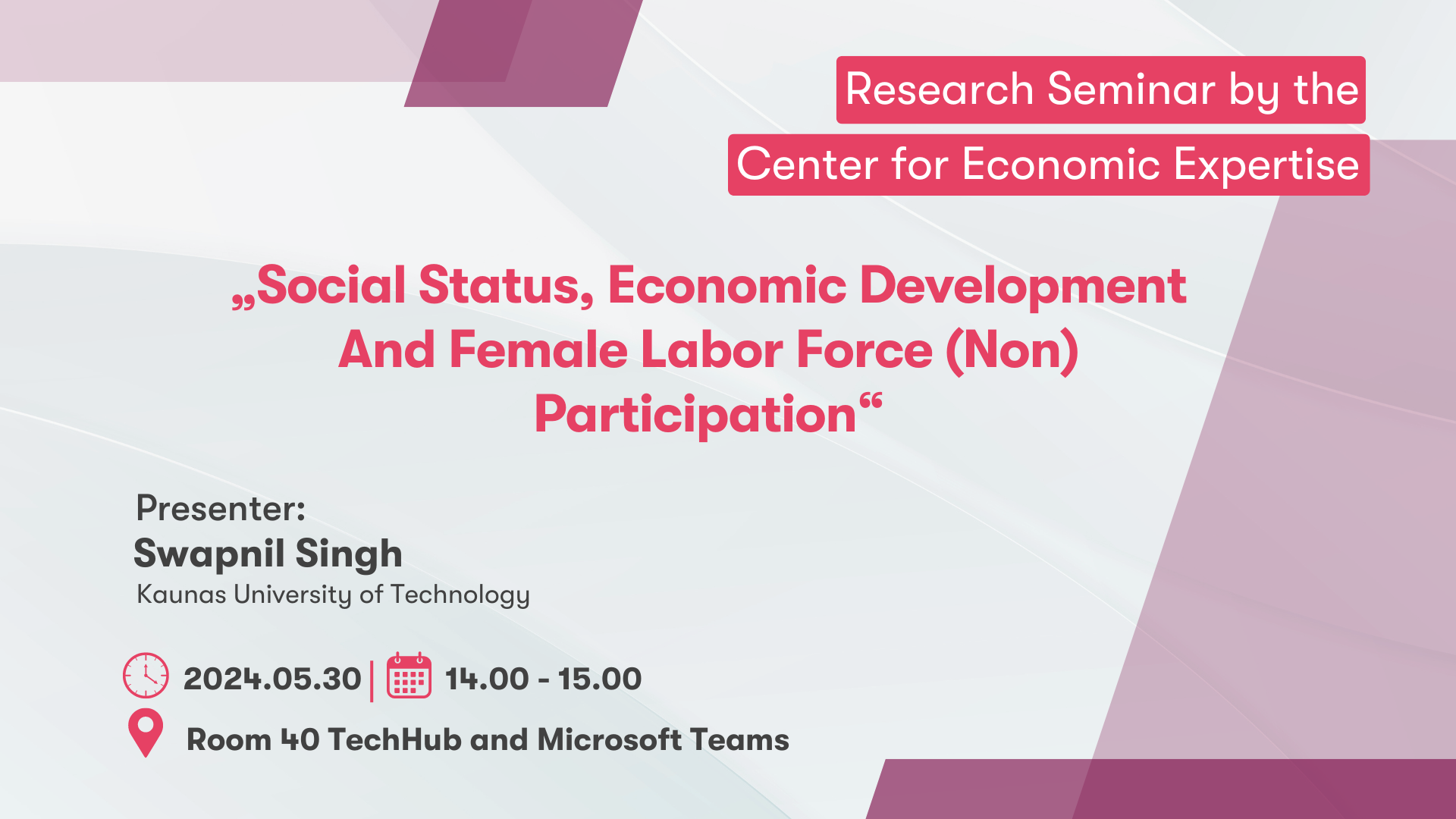We are happy to invite you to the research seminar by the Center for Economic Expertise. On May 30th Swapnil Singh (KTU) will present the topic „Social Status, Economic Development And Female Labor Force (Non) Participation“ in TechHub room 40 and MS Teams.
Brief overview of the seminar
This research provides a status-based explanation for the persistent increase in female labor force non-participation (FLFNP) that often accompanies economic development. This explanation is based on the idea that social status provides preferential access to non-market goods and services. Status is increasing in wealth, but wealth is unobserved and so households or ethnic groups must signal their wealth by making costly choices. Withdrawing women from the labor market is one such choice, and if the value of social status or the willingness to bear the signaling cost is increasing with economic development, then this would explain the persistent increase in FLFNP. To provide empirical support for this argument, we utilize two independent sources of exogenous variation – across Indian districts in the cross-section and within districts over time – to link FLFNP to social status. Our status-based model, which is used to derive the preceding tests, is able to fit aggregate trends in Indian FLFNP very well. Counterfactual simulations of the estimated model indicate that an exogenous decline in the cost of female education would raise FLFNP by increasing potential household incomes and, hence, the willingness to compete for social status, whereas a policy that reduced the non-pecuniary constraints to female labor supply, by weakening gender norms for instance, would substantially reduce FLFNP.
Information on the seminar
- Time: May 30, 14:00-15:00
- Venue: Faculty of Economics and Business Administration, Vilnius University, Saulėtekio al. 9, Vilnius, TechHub room 40 and MS Teams Click here
- Presenter: dr. Swapnil Singh, KTU senior researcher and Principal Economist of the Bank of Lithuania
- Topic: „Social Status, Economic Development And Female Labor Force (Non) Participation“
- Abstract:
- Working language: English
The seminar is open to all - students, teachers, researchers. We invite you to learn more!
